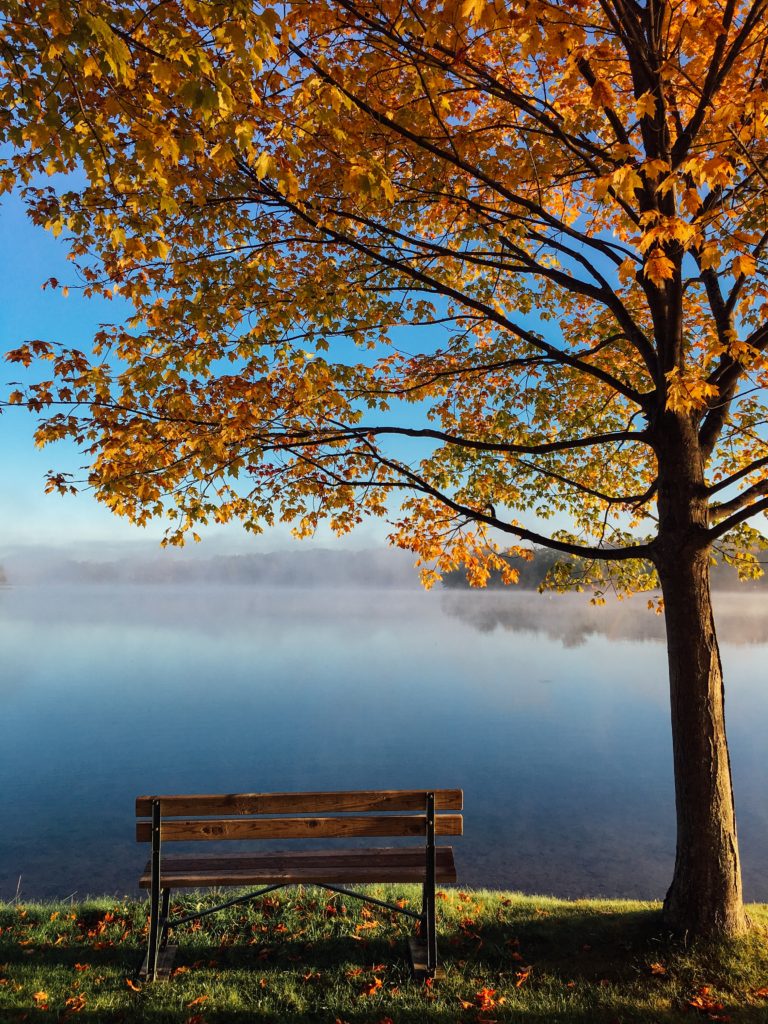This week I have been mourning the death of five trees that had to be cut down in my yard. It was not anything like getting rid of an old piece of furniture. They are living creations of God that have brought me beauty, peace and joy. It has been hard to say goodbye, especially knowing that it will take their replacements twenty plus years to be there equal.
The arborist we hired to help us decide what to do with the trees explained that these particular trees only have a 20 year life expectancy and they were now 26 years old. It was normal for trees to become infected with bores and diseases when they reach their life-span. His counsel was, “It is time to cut them down and start over.” Well, that was easier said than done!
My focus then turned to finding trees that would live a very long time, that were strong, hearty, resistant to disease and bores. I wanted to replace my old trees with something that would last. I didn’t ever want to have to go through this again, financially or emotionally.
I began to think about this word “last.” Does anything really last? No matter what trees I pick, they won’t last forever. They, too, will eventually die. Everything ultimately dies or is left behind on this earth—our bodies, our homes and businesses, our belongings, our careers, and whatever temporal fame and fortune we managed to accrue.
I was reminded of a saying I created for my children after we moved from Idaho to Utah, to help them focus on what was most important, “Happiness isn’t a thing or a place; happiness is doing God’s will wherever you are.”
Though I loved those trees, they were nevertheless a temporal “thing” and I needed to make sure I was focusing on things that really last—things of eternal value. As M. Russell Ballard noted “what matters most is what lasts longest.”
I am so grateful for great women and men who have gone before me, who set aside temporary, earthly “things” and focused on doing “God’s will”. By so doing, they created treasures in heaven that would last for all eternity.
I am amazed my ancestors were able to cut down their beloved ‘trees’, so to speak, and leave their homes, relatives, friends, careers, native language, beloved countries and suffer unimaginable physical hardships in order to do God’s will and create a new life—a life that would last beyond the sands of time. Could I do that?
I loved a saying in the TV series, Chosen, when the Savior says, “I expect a lot of those who follow me, but very little of those who don’t.” My Ancestors wanted to follow the Savior and so much was required of them. So it is with us. We will have to do more than cut down a few trees to prove ourselves valiant in the testimony of Jesus. Are we ready to make the sacrifices required to follow Him?
What “trees” need to be cut down in our lives? Perhaps our diligence in keeping the Sabbath day holy has become a little lax during covid. Do we need to do some pruning or even uprooting?
Maybe we have been unwilling to forgive an offense at the hands of a family member, friend, or neighbor and are choosing to hang onto our angry feelings?
Maybe we have allowed ourselves to become too busy and have neglected our marriages and families?
I invite each of us to ask God what we need to STOP DOING—or “cut down” in our lives? And what we need to START DOING—plant or replant, so that we can enjoy a life with God that will “last” into the eternities?
Alexander Smith, the Scottish poet said, “A man does not plant a tree for himself; he plants it for posterity”



Great message!
Beautifully said, Camille! <3
Good thoughts Camille. I agree with you!